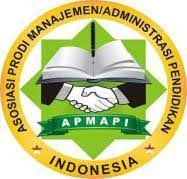Students Perception of The Impact of The Merdeka Belajar Kampus Merdeka (MBKM) Program on Improving Graduate Quality at The Faculty of Education, State University of Jakarta
DOI:
https://doi.org/10.21009/improvement.v11i2.50242Keywords:
MBKM, Perception, Quality of GraduatesAbstract
This research aims to find out that the impact of the MBKM program can contribute to improving the quality of student graduates at FIP UNJ. The research method used is a survey, using a quantitative approach. The data collection technique in this research was carried out using a questionnaire designed in the form of a statement with a Likert assessment, then distributed via Google form involving a sample of 323 FIP UNJ students. The sampling technique of 323 respondents as samples in this study used the technique (Proportional random sampling), namely the sample by paying attention to the proportion of the population elements. The results of this study are that FIP UNJ students tend to have a positive perception of MBKM, which is considered to strengthen experiential learning, improve hard skills and soft skills, and prepare them for the world of work. MBKM contributes significantly to improving the quality of graduates and the suitability between education and work after graduation. This program also supports the development of students' intelligence and personality. However, there are several obstacles in its implementation, such as lack of socialization and cooperation with industry, which can be overcome through increased socialization, cooperation, monitoring, evaluation, and provision of adequate resources to increase the effectiveness of the program.
Downloads
Published
How to Cite
Issue
Section
License
Copyright (c) 2024 Unifah Rosyidi, Neti Karnati, Rahmatiah, Chyta Anidhyta, Reza Ifnuari, Mohamad Shepna Giantama

This work is licensed under a Creative Commons Attribution-NonCommercial-ShareAlike 4.0 International License.
Authors who publish with this Journal agree to the following terms:
- Author retain copyright and grant the journal right of first publication with the work simultaneously licensed under a creative commons attribution licensethat allow others to share the work within an acknowledgement of the work’s authorship and initial publication of this journal.
- Authors are able to enter into separate, additional contractual arrangementfor the non-exclusive distribution of the journal’s published version of the work (e.g. acknowledgement of its initial publication in this journal).
- Authors are permitted and encouraged to post their work online(e.g. in institutional repositories or on their websites) prior to and during the submission process, as it can lead to productive exchanges, as well as earlier and greater citation of published works.
-
Users/public use of this website will be licensed to CC BY-NC-SA (Attribution & Non-Commercial-ShareAlike)


